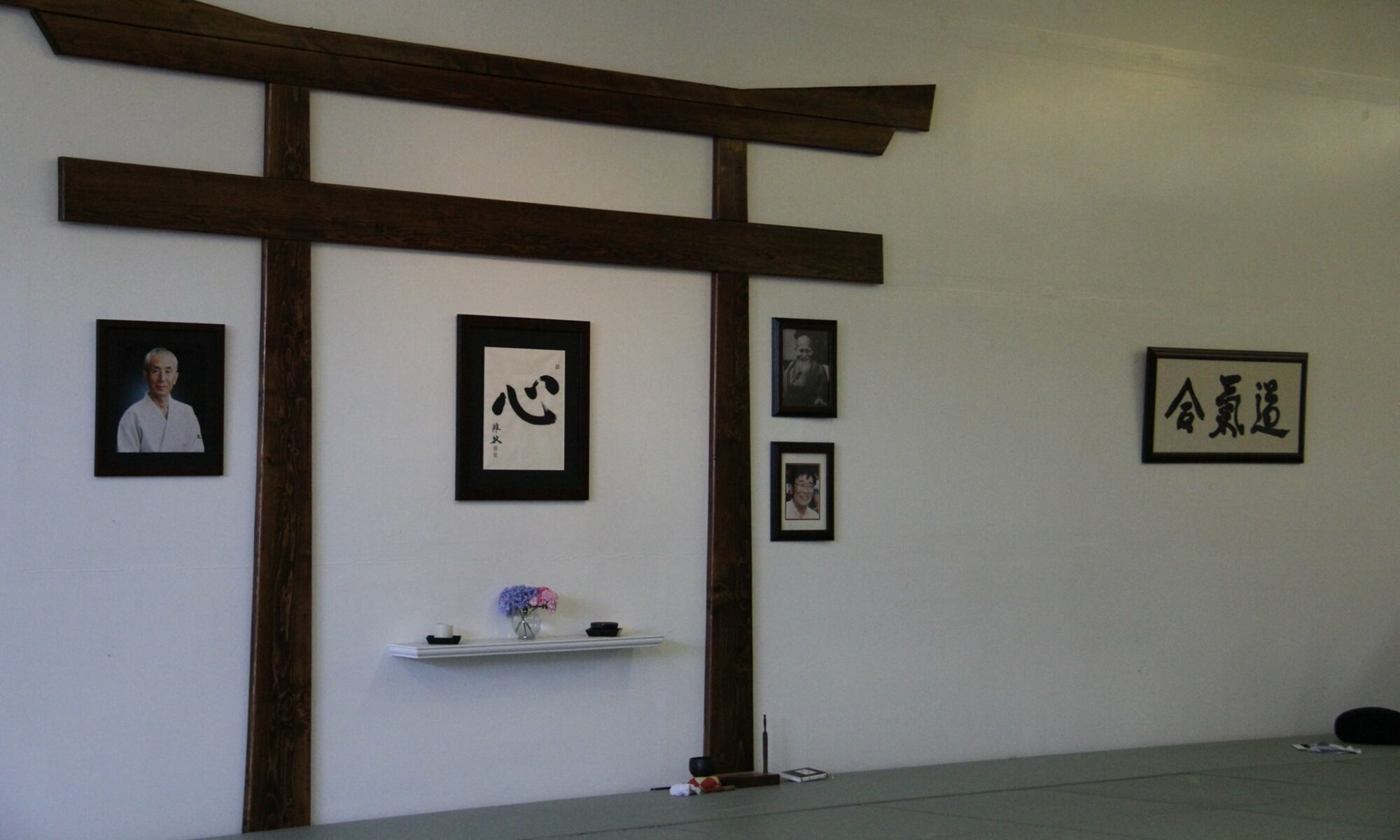We come to our dojo to train so that we’re better able to apply the principles of aikido in our daily lives...
A way of thinking about and growing awareness…
Anyone who’s practiced regularly at Aikido Olympia has heard that one of the key benefits to our practice is expanding our awareness. For many of us, this comes as we become more relaxed, become more present in our activities, and as we apply our 180 degree vision more often in our daily lives. Some of us find our awareness stretching as we become more empathetic and in tune with other people. And, a few feel their awareness expand as they simply sit and calm their minds.
All of these strategies help us grow, as we proceed along the path of being in harmony with the energy of the universe, and it’s not necessary to add anything extra. That said, an occasional question to ourselves can sometimes help us get back on track when we’ve been drawn into one of the many situations that constrict our awareness. One such question is “have I considered both the yin and yang of this thing/thought/event?”
All energies are continuously flowing and we know that the wave forms for these energies have two modes, a yin and a yang. It’s not really necessary to know that yin is the dark, cool, female, absorbing aspect while yang is the bright, warm, male, projecting aspect. What’s more important is to know that the two aspects create wholeness together. Therefore, when our mind and our flow get stuck, asking ourselves if we’ve considered both the yin and the yang aspects of the situation can help us re-engage our awareness. And, the more we learn to re-engage our awareness when we’re stuck, the more that awareness can grow.
By Nate Weed

